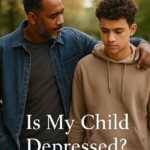New York Researchers Explain Anxiety — and What You Can Do About It
From Mind Centered Counseling — Serving all of New York State virtually, and in person in Queens Village.
Anyone experiencing anxiety, seated by window in New York.
Anxiety is one of the most common mental-health challenges today, affecting millions of New Yorkers of all ages. While occasional worry is part of being human, chronic anxiety can interfere with sleep, relationships, work performance, and physical health. Recent research from New York universities is shedding light on why anxiety develops — and how we can respond more effectively.
What the Research Shows
Studies from institutions such as the University at Albany (SUNY) and SUNY New Paltz highlight the complex interaction between genetics, environment, and learned coping patterns.
- Researchers at the University at Albany’s Anxiety Disorders Research Program describe how persistent exposure to stress hormones like cortisol can affect brain systems involved in emotional regulation.
- A growing body of evidence shows that mindfulness-based interventions reduce anxiety and depression in student and adult populations.
- Chronic stress is linked to structural and functional changes in emotion-regulation areas (prefrontal cortex, hippocampus), impacting top-down control of threat responses.
- Community and cultural context also matter — particularly for immigrant and minority populations in NYC — shaping how anxiety is experienced and treated (CUNY Graduate Center review).
Together, these findings remind us that anxiety isn’t “just in your head” — it’s a whole-body and community issue requiring a compassionate, evidence-based approach.
What You Can Do
Recognizing anxiety early and seeking professional support can help prevent long-term effects. At
Mind Centered Counseling, our licensed clinicians offer individualized therapy for anxiety, stress management, and trauma recovery — both virtually across New York State and in person at our Queens Village location. We combine cognitive-behavioral therapy (CBT), mindfulness, and culturally responsive care to help clients regain balance and confidence.
Take Our Free Anxiety Self-Assessment (GAD-7)
If you’re unsure whether what you’re feeling might be anxiety, try our short
Anxiety Self-Assessment (GAD-7). It only takes a few minutes and can help you understand your current symptoms before reaching out for support.
Ready to Talk?
You don’t have to navigate this alone.











